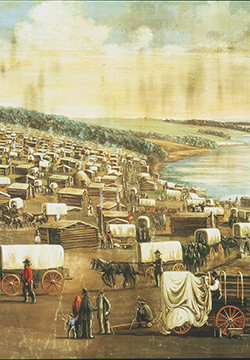June 16, 1835
State of Ohio v. Joseph Smith. Assault and battery charges were brought against Joseph Smith in the Court of Common Pleas by Calvin W. Stoddard, Joseph's brother-in-law (married to Sophronia). Joseph was acquitted.

Read peer-reviewed articles about Joseph Smith and other Church history topics from BYU Studies. Visit byustudies.byu.edu.